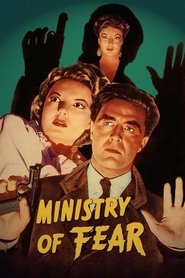I wonder if the shopkeeper who rents Stephen and Carla the room above the bookshop was an inspiration for Mr Charrington in George Orwell's Nineteen Eighty-Four. Anyway, despite Graham Greene's dislike for Alfred Hitchcock, I see him most clearly in the plot hinging on mistaken identity; the idée fixe of Hitchcock who made this theme a rich vein of existential meaning. Indeed, speaking of Hitchcock, Glenn Kenny suggested that:
Nazism […] is arguably reduced to what Alfred Hitchcock called a MacGuffin—that is, an it-could-be-anything pretext for the suspenseful action.
Indeed, it's difficult to see all that much of Lang in this film except in the lighting and the anti-Nazi sentiment, although Joseph Jon Lanthier observed in Slant that:
Nearly the entire carnival accosts him with cold, purposeful eyes, insisting that a mistake has been made. Converting a throng with evidently individual concerns into a mob with a singular, morbid objective was for Lang an activity akin to snapping the fingers.
For me, though, the eerie feeling of 'nothing making sense' begins to wear a little thin after a while and this "minor work in need of some delicate defense" (Lanthier again…) doesn't quite come together.

